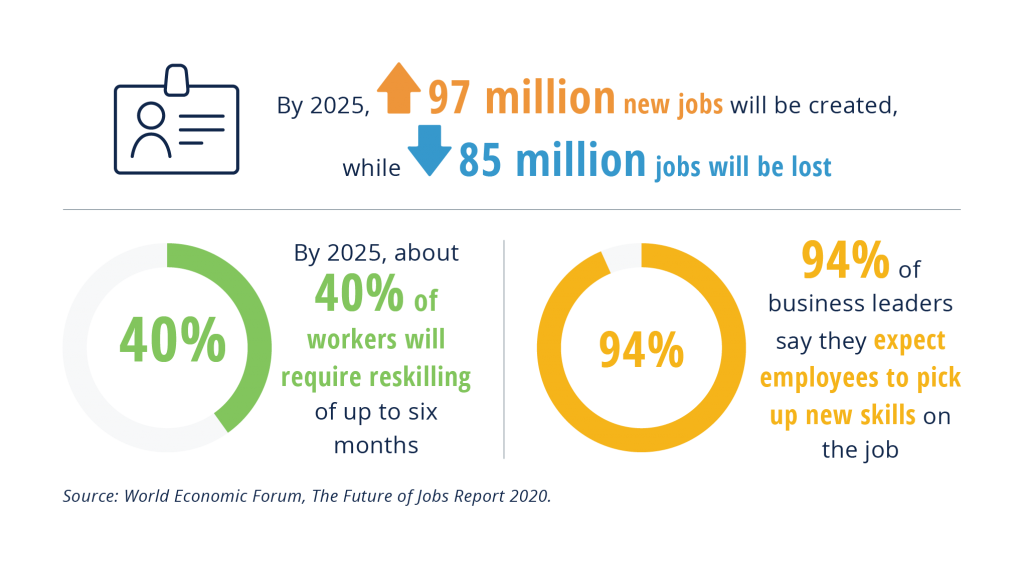
As technology continues to evolve at a rapid pace - shifting demands on workers - upskilling your workforce is becoming increasingly important in the modern business world.
According to the World Economic Forum Future of Jobs Report, by 2025, 97 million new jobs will be created, while 85 million jobs will be lost.
The report also estimates that by 2025, about 40 per cent of workers will require reskilling of six months or less. In addition, about 94 per cent of business leaders say they expect employees to pick up new skills on the job.
We outline some steps you can take to upskill staff for the workforce you need now.

Pinpointing what skills your employees need to take your business further is a crucial first step in the process.
You can do this by conducting a skills gap analysis, which is an assessment of your business’ current capacity compared to the skills you require.
A skills analysis may include:
- Questions about the direction of your organisation.
- Identifying the skills sets your employees require and what they may require in future.
- Determining which areas of your business are lacking knowledge or resources.
- Looking at which skills may be replaced with automation.
- Gauging whether any jobs you need to fill do not exist yet.
- Strategies for achieving your goals.
A skills gap analysis can be outsourced to external parties or via online tools.
Determine whether you can upskill your existing staff in-house or externally.
Options for upskilling in-house include:
- Job rotation: Seconding workers to different parts of an organisation can be a cost-effective way to increase the skill base of your business. This usually occurs between roles on the same level and as a temporary measure.
- Job enlargement: This involves providing current employees with additional responsibilities. Workers will need training and depending on their employment contract, you may need to pay them more.
- Job enrichment: Adding extra dimensions to a worker’s role, including more variety in their tasks and more independence can be a good way to upskill as well as motivate workers.
- Co-worker guidance: Employees may be able to learn from each other via coaching or mentoring. It may be useful to “buddy-up” certain workers.
Options for upskilling externally include:
- Online learning modules such as CCIWA’s eLearning courses can help build your workers’ skills and can be tailored to a business’ needs.
- Tertiary institutions or training bodies have a host of courses your workers could complete. Be willing to foot the bill for this training if you have given your employees a direction to upskill. However, there are government incentives for upskilling current workforces.
- External experts on certain areas may be brought in to help your staff learn more.
Ask yourself whether your process of upskilling has succeeded – is your workplace moving in the direction you set out?
As one upskill cycle ends, another one may need to begin – such is the rapidly changing nature of workforces.
Always be willing to assess the skill levels in your workplace and to apply appropriate training mechanisms.
For advice or guidance contact CCIWA’s Employee Relations Advice Centre on (08) 9365 7660 or Apprenticeship Support Australia on 1300 363 831.






